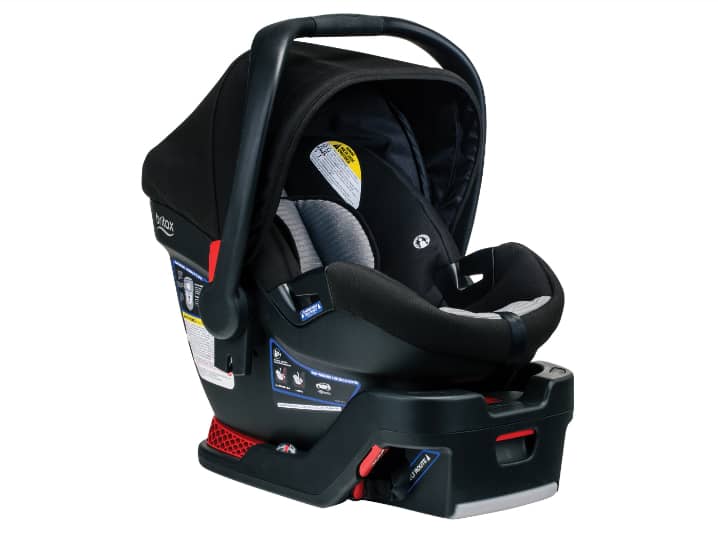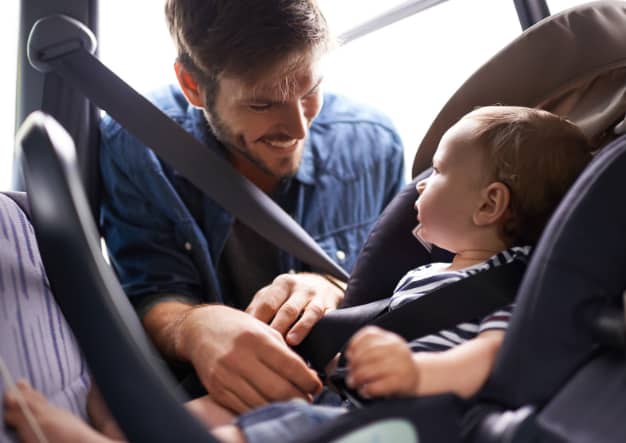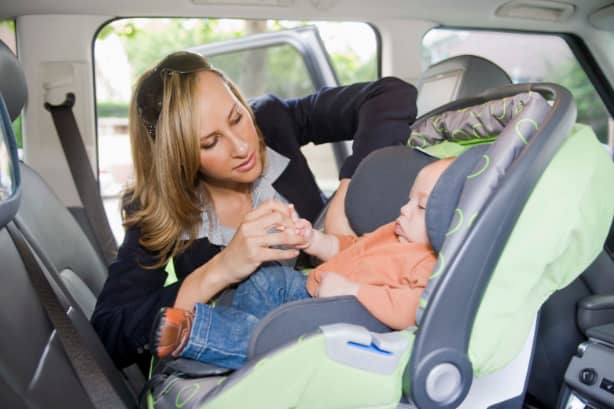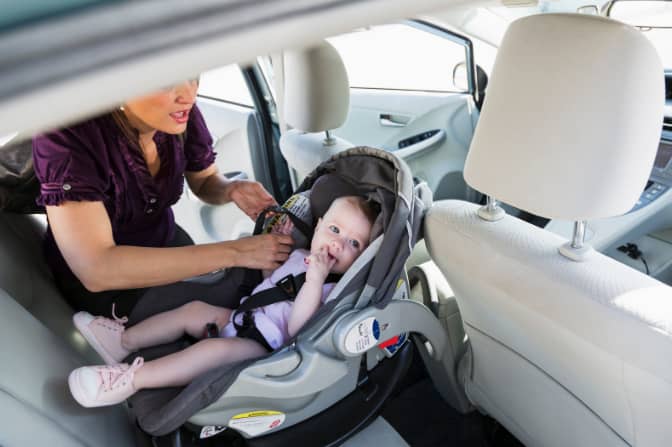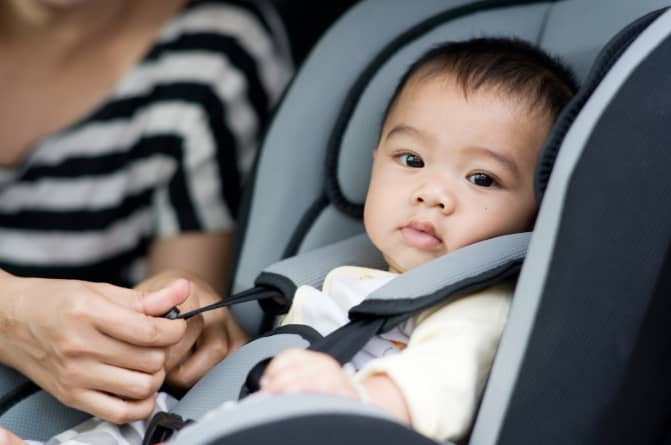Regarding child and infant car seat use, every state has its own laws. When riding in a vehicle These laws state the particulars for age, weight and size of the kid wherever their safety is of concern. To confirm every child is provided with this elementary travel necessity, States have realized government-supported programs. The WIC free car seat program is one model of this.

Purpose of the WIC Program
The WIC program was designed to provide basic nutritional support to women, infants and kids up to the age of five years. Federal Government provided the fund for the WIC program. And the program is operated by each state. The program offers food, and training to persons affected by poor nourishment. WIC offer courses for women and attending courses is obligatory to maintain eligibility.
WIC Car Seat Program Assistance
The costs of a new car seat are very high. The WIC car seat program provides help to low-income families. Depending on the state you live in The program might need you to attend safety courses. This program confirm you know how to appropriately install and use the device.
For qualifying families, Some states provide free car seats. While other states charge a small fee. You can find out more info specific to your state’s requirements at your local WIC office. Info are also available in the Department of Human Services, pediatrician’s office, or hospital.
WIC Car Seat Program Requirements
For the WIC free car seat program Each state has its own requirements. The most common terms are connected to meeting the income guidelines inside the home. Whenever you are in need of help for getting safe and approved car seats for your kid, you are encouraged to contact your local WIC office. You will be able to find out if you qualify to obtain this service.
WIC Eligibility Requirements
To be eligible for WIC, applicants must have income below an income level or standard set by the state agency. It could also be determined automatically income-eligible based on partaking in certain programs.
Income Standard.
The state agency’s income standard must be between 100 percent of the federal poverty guidelines. That is issued each year by the Department of Health and Human Services. But it cannot be more than 185 percent of the federal poverty income guidelines. You should check WIC 2022-2023 Income Eligibility Guidelines.
How to Apply for WIC Program
There are Two ways to apply for WIC
- Call WIC at (310) 661-3080.
- or start to apply online. Click here>>
By phone–beginning to apply for WIC
- An associate of WIC staff will enquire you a few simple questions, for example your income and where you live.
- She will enquire if you are pregnant or have a kid or a child up to 5 years old.
- She will provide you a date and time for a phone appointment that is suitable for you.
Applying for WIC
- Do a phone appointment to apply. Call (310) 661-3080.
You may require:
- Evidence of income.
- If you do not have evidence of income, it might be okay. A member will talk with you regarding this.
- proof of your address wherever you live. This could be any mail that contains your address.
If you do not have all the documents WIC needs
- They can register you for 30 days. After that, you must supply the documents WIC needs.
During your phone appointment
- You and the WIC instructor will decide if you are eligible.
- If you are qualified, the WIC instructor will register you or your kid.
- You could ask questions and tell her or him your concerns.
How to Get a Free Car Seat If You Cannot Get Through WIC?
If you cannot get free car seat by WIC, WIC does not have any, or you do not qualify for WIC as your income is just slightly above the poverty rules to be eligible for WIC, these other programs could help.
There are many methods you could get a free car seat. But, the best and easiest way is to get it through Medicaid.
Medicaid
Medicaid is a government-supported insurance program for under privileged people of any age who could not afford medical care. It can be mentioned to as a health care program plus not as an insurance program.
The services comprised in this program are for supporting low-income families and persons in paying for doctor visits, long-term medical expenses, hospitalizations, custodial care, and more. Presently, Medicaid has become one of the biggest sources of funding as well as health care payers in the United States.
Safe Kids Worldwide
Safe Kids Worldwide is an institute that is committed to keeping kids safe from injuries. There are over 400 diverse Safe Kids coalitions through the United States. It has associates in 30 diverse countries to promote safety for kids. It trains child passenger safety technicians (CPSTs) in what they do. CPSTs give extensive training on everything one requires to know about car seats.
Baby 2 Baby
Baby 2 Baby has distributed over 50 million stuffs to families. Depending on wherever you live, you might be able to get a free car seat by one of their partner groups.
Hospitals
Some hospitals offer car seats at a considerably reduced price, however not for free. They will, however, help you find somewhere that might offer free car seats or brands that have low-priced options.
211
“211” is a bit of a concealed gem for anybody struggling out there. Not just finding a reasonable car seat, but other basic requirements like food and rent help as well. It is essentially a way to find help without making a million phone calls to diverse departments.
Everyday Miracles
Everyday Miracles is an institute in Minneapolis, Minnesota, that works to deliver low-income mothers with needs. You must complete their request form to obtain help. On the form, you specify a request for a car seat, Doula, breast pump, or all of these.
This is a resource you could use for both unborn children and kids already born in need of a car seat. Unluckily, there is a high demand for car seats, thus your request might take some time.
Requests for a doula must be made around 26 weeks of pregnancy. Breast pumps need a prescription from your health care provider.
Child Safety Seat Program
The District Department of Transportation runs a federally sponsored Child Safety Seat Program. The program is designed to share info with parents about the importance of appropriate use of kid safety seats every time a kid rides in a car.
The program provides a free booster seat, and info about correctly installing and buckling progenies into their car safety seats. It is a multi-agency effort with DDOT, DC Department of Motor Vehicles (DMV), Metropolitan Police Department (MPD), and Safe Kids Washington DC.
Project Safe-Child
Project Safe-Child delivers a free car seat to all District citizens with a legal government-issued ID. These could be obtained by:
Voucher program – Vouchers are dispersed by appointment ONLY at the DDOT H.Q. situated at 250 M Street, SE, and through the District, for example health centers, schools, and youth centers, including: Garfield Elementary School, Children’s National Hospital, and Tubman Elementary School.
Booster Seat program – Free booster seat for kids at least four years old plus weighing at least 30 lbs.
Vouchers are cashed, and booster seats are circulated at MPD at 501 New York Avenue, NW. Here a Licensed Passenger Child Safety Technician will correctly install and deliver parents education on the significance and use of kid safety seats. These services and free car seat checks are offered every Tuesday and Thursday from 10 am to 6 pm; no appointment needed.
The Safe Riders program
The Safe Riders program dispenses and educates on appropriate child safety seat use. Safe Riders wants to decrease the number of motor car crash (MVC) wounds and fatalities to unrestrained kids in Texas. The program is obtainable to eligible receivers and is available in most, however not all areas of Texas. Program goals are to:
Coordinate a state wide child safety seat delivery and education program (approved by Texas law, 1993);
Deliver child passenger safety (CPS) instructive classes that are open to the community. It should be steady and recognizable in the community;
Partner with local CPS advocates. They distribute child safety seats to qualified families following the Texas Department of State Health Services (DSHS) rules; and
Deliver free child safety seats to Texas families who are suffering fiscal hardship.
You will find free car seats in many places. some fire professionals and police are also licensed CPSTs. Even if they are not, most police/fire departments have resources required to help you find the accurate place to go.
Insurance is perhaps less likely than your other options. However, it is worth a call to see if your insurance would cover a free infant seat.
Why used car seats are not recommended?
Do not purchase a used car seat unless you could verify the age of the seat. There should be a maker’s label on the back or bottom of the seat that provides the manufacture date and expiration date.
You should learn the crash history of the seat (whether it was ever involved in an accident). This is significant since the National Highway Traffic Safety Administration (NHTSA) and car seat manufacturers have replacement standards for whether or not the car seat is still safe to use afterward a crash.
Decide whether used car seats have all of the original parts required for safety and appropriate function. As it is common for several parts to be lost over time. For instance, a harness on a combination seat might have been removed when the child outgrew it. And was later replaced without a small piece that affects the utility of the harness in a smash.
If you cannot confirm all of the things stated here, the car seat is considered unsafe for use, even if it seems to be in good condition. Crashes could cause stress and operational weakness that is not visible from the outside. And older car seats could be weakened by several seasons of cold and heat in the car. If a used car seat is not coming from a close friend otherwise family member and meets the above standards, the best choice is to purchase a new car seat for your baby.
Why Are Car Seats Important?
Using a car seat, also called a child safety seat, is the best method to protect your children when they are in a car. Car crashes are one of the primary causes of death and wound for kids. Using a car seat is the law in every U.S. state since car seats save lives.
But keeping your kid safe depends on selecting the correct safety seat and using it properly. The best car seat is the one that fits your kid’s size, weight, and age, along with your vehicle.
Child seat laws in the USA are set by state. So if you are visiting the USA with kids and renting a car or travelling by car, you need to know the rules and laws about child car seat provision. Car seat laws are set at state level. And you should check the legal requirement for the state(s) in which you plan to drive with kids in the car.
FAQ’s
What is the purpose of this service?
WIC is a food assistance program for Infants, Women, and Children. It aids pregnant females, new mothers and young kids eat well and stay healthy.
Who can receive these services?
Females and their kids who are:
Pregnant, breastfeeding otherwise just had a baby
Infants and Kids under 5 years old (including foster kids)
Families with a low toward medium income
Use the Pre-Screening Tool to find out if you may be eligible for WIC advantages.
What services are offered?
WIC can offer:
A WIC EBT card to buy special healthy foods – like milk, juice, eggs, fruits and vegetables, cheese, cereal, dry beans or peas, whole grains, and peanut butter
Info about nutrition to help you plus your family eat healthy and be well
Info and help about breastfeeding
Help in discovery health care and other services in your area
Will I have to pay to participate in WIC?
No, participants do not have to pay any cash to partake in the WIC program.
Who gets first priority for participation?
If WIC could not serve all the qualified people who apply for advantages, a system of priorities is established for filling program starts. When a local WIC agency has reached its maximum case load, vacancies are usually filled in the order of the below priority levels:
Pregnant females, breastfeeding ladies, and infants determined to be at nutritious risk because of severe medical problems.
Infants up to 6 months of age whose mothers partaken in WIC or could have joined and had severe medical problems.
Kids (up to age 5) at nutritional risk owing to severe medical problems.
Pregnant or breastfeeding ladies and infants at nutritious risk owing to dietary problems (like poor diet).
Kids (up to age 5) at nutritional risk owing to dietary problems.
Non-breastfeeding, postpartum females with any nutritious risk.
Individuals at nourishing risk only since they are homeless or migrants, and present participants who without WIC foods might continue to have medical and dietary problems.
How is WIC funded?
WIC is a Centralized grant program for which Congress sanctions a precise amount of funds each year.
WIC is not an entitlement program for example Medicaid, thus it does not receive the funds essential to serve each eligible person.
How many people does WIC serve?
In Fiscal Year (FY) 2021, about 6.2 million infants, women, and children received WIC advantages. For the first 5 months of FY 2021, States reported average monthly participation above 6.2 million members per month. Of the 6.2 million people getting WIC benefits in 2021, about 3.4 million were kids, 1.4 million were infants, and 1.3 million were females.
How does WIC help?
WIC supplemental foods have revealed to deliver wide ranging advantages containing longer, safer pregnancies, and improved performance at school, among others. Along with health benefits, WIC participants presented noteworthy savings in healthcare costs before compared to non-participants
How are WIC benefits distributed?
In most WIC State organizations, WIC participants obtain checks or vouchers to buy specific foods each month. That are designed to supplement their diets with precise nutrients that benefit WIC’s target people. Furthermore, some States issue an electronic benefit card to participants in place of paper checks or vouchers.
The use of electronic cards is increasing and all WIC State organizations are required to execute WIC electronic benefit transfer (EBT) state wide by October 1, 2020. A few State agencies dispense the WIC foods through warehouses or provide the foods to partakers’ homes. Diverse food packages are provided for diverse groups of participants.
How long is somebody certified for the program?
Depending on their WIC classification, participants are practiced for a precise length of time. At the end of the accreditation period, partakers can repeat the certification procedure to be recertified. The common certification times by WIC grouping are:
Pregnant ladies are licensed up to 6 weeks past their expected date of delivery.
Breastfeeding females are qualified for up to 1 year from date of delivery as long as they continue to breastfeed.
Postpartum women are qualified for 6 months from the date of delivery.
Infants added previous to 6 months of age are qualified up to their first birthday.
Kids and infants added afterward 6 months of age are qualified for 6 months.
Can men receive WIC benefits?
Although WIC does not deliver food packages for men, they get several other benefits. The WIC program was developed to meet the requirements of pregnant women, infants, and kids in the critical growth years of fetal growth and early childhood.
WIC advantages, by design of the program, are delivered only to breastfeeding, pregnant, and postpartum females; infants; and progenies till their 5th birthday. A male with any of these members in his family would benefit from the support, nourishing food, and nourishment education presented to his family.
Men can and are encouraged to join in family nutrition counseling, nutrition education, shopping for WIC permitted food, and recommendations to health care and other programs that might benefit their families
Why should I sign up for WIC?
WIC is a program designed to aid families and young kids during a significant time in growth. The advantages are several, including healthy food, connections to local resources, support, and much more.
WIC is a voluntary program and partaking will not interfere with use of other programs similar SNAP or Medicaid. WIC is intended to supplement your food budget as well as compliment your usage of other resources.
How much time does it take to get WIC?
Your first appointment with WIC must be in-person otherwise over the phone (throughout COVID-19 outbreak). This appointment would take longer than normal as they have info to collect to approve eligibility, health and nutrition, plus issue your card and benefits.
After the first appointment, you could expect to make contact around every 3 months, and several appointments might even be completed on your WIC Smart phone application!
Is WIC Temporary?
Yes, partaking in WIC is for a set period and is only for post-partum and pregnant women, infants, and kids up to age 5.
What is the difference between state and local wic agencies?
State WIC organizations obtain funding from USDA to manage the WIC program in their state. The 34 Indian Tribal Organizations, 50 US states, the District of Columbia, US Virgin Islands, Puerto Rico, Northern Mariana Islands, American Samoa, and Guam make up the 90 state WIC organizations. State WIC organizations receive funding and policy regulation from USDA and distribute those finances to their local organizations.
Local agencies obtain funding from state WIC organizations to serve WIC families. Several local organizations run several WIC sites. Some organizations are run by county otherwise local governments, however others are run by nonprofit agencies and hospitals.
Helpful Videos on WIC Program
WIC Program
Saving the Children: The Story of WIC
WIC Program at Denver Health Helps Women, Infants and Childrens
WIC: Your Rights and Responsibilities
Final Thoughts
Car seat is a very important staff. But, not everybody can afford to purchase one. A lot of parents, specifically in low income families, would love to get a free car seat for their baby.
The overall objective of WIC program is to increase the availability of child safety seats for low income families. It will increase correct installation and appropriate use of child safety seats. The program provides education and free child safety seats and booster seats from the third trimester of pregnancy.
The licensed technicians deliver FREE educational sessions and car seat checks to any person transporting kids in car seats. These checks normally take between 30-45 minutes. For infants and kids, having a car seat is essentially a legal requirement.

